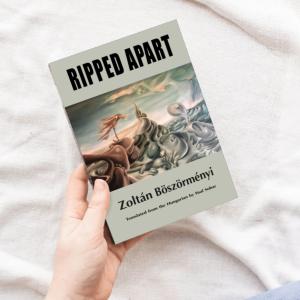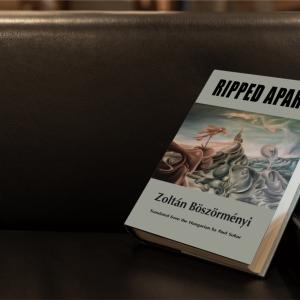
Not Even the Eternal Woman Is Eternal
Yuppie Life from Existentialist point of view
For Rudolph the starched shirt is one of the most essential elements of life, something that gives him a feeling of security – after all, the protagonist of the novel is the hero of our age, a true yuppie, who spends his mornings selling cars and the afternoons taking courses in philosophy. His married life is a boring routine, for excitement he runs to his oversexed Wanda whenever he can take a break. These factors and people define Rudolph’s life – all to his own satisfaction.
But then the old routine starts tumbling down, and his life comes apart. His business associates and long-time, valued customers turn out to have been engaging in fraudulent activities, he’s blamed for not catching on to them, his mistress dies under mysterious circumstances, and finally our hero is forced to face the question: has his life consisted of nothing but clichés and he has only “imagined that he existed” or has he been the forger of his own destiny. Of course, the main question is whether Rudolph is, in possession of all the facts, capable of changing himself. And this is exactly the crux of Böszörményi’s bravura performance; the novel ends with its very first paragraph, returning to the beginning, and thus prompting the reader to think through Rudolph’s dilemmas for himself.
Some reader will be put off by the protagonist, but his character is the central premise of the book. Böszörményi, the poet, is well-known from his several volumes of poetry, but in this book he makes his debut as a novelist. And he’s not doing it the easy way. He presents the career-oriented yuppie world of ours in the light of French existentialism. It is a world in which many only imagine they exist – but as the last page shows – not even the Eternal Woman is eternal here.
Haklik Norbert in Magyar Nemzet























